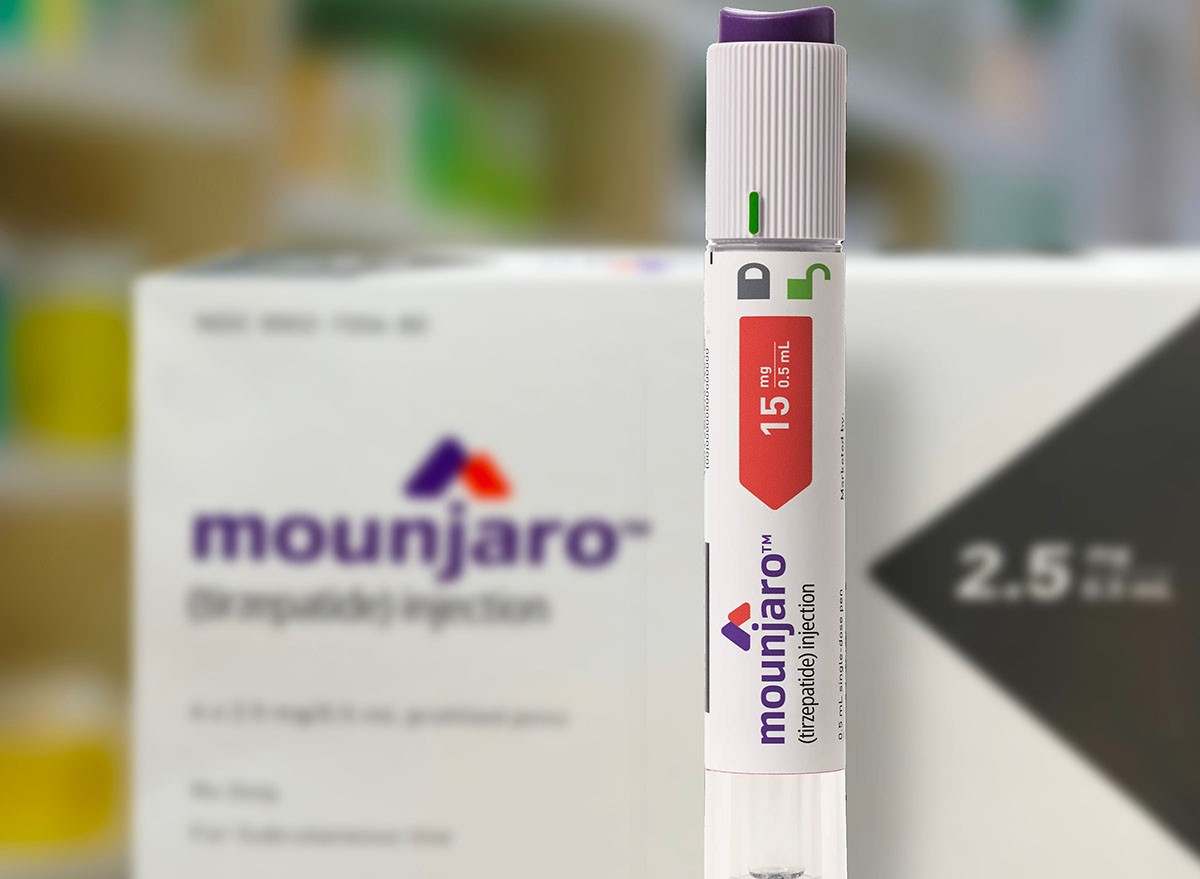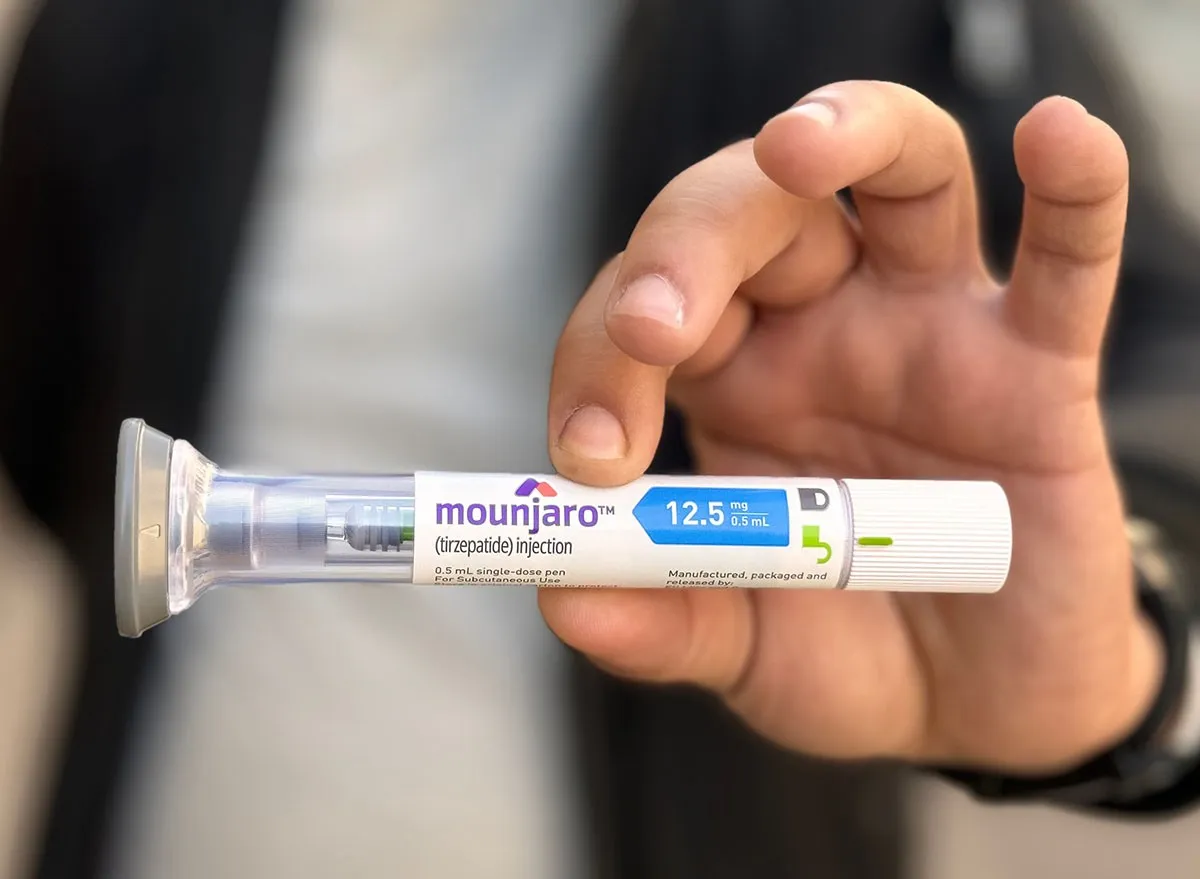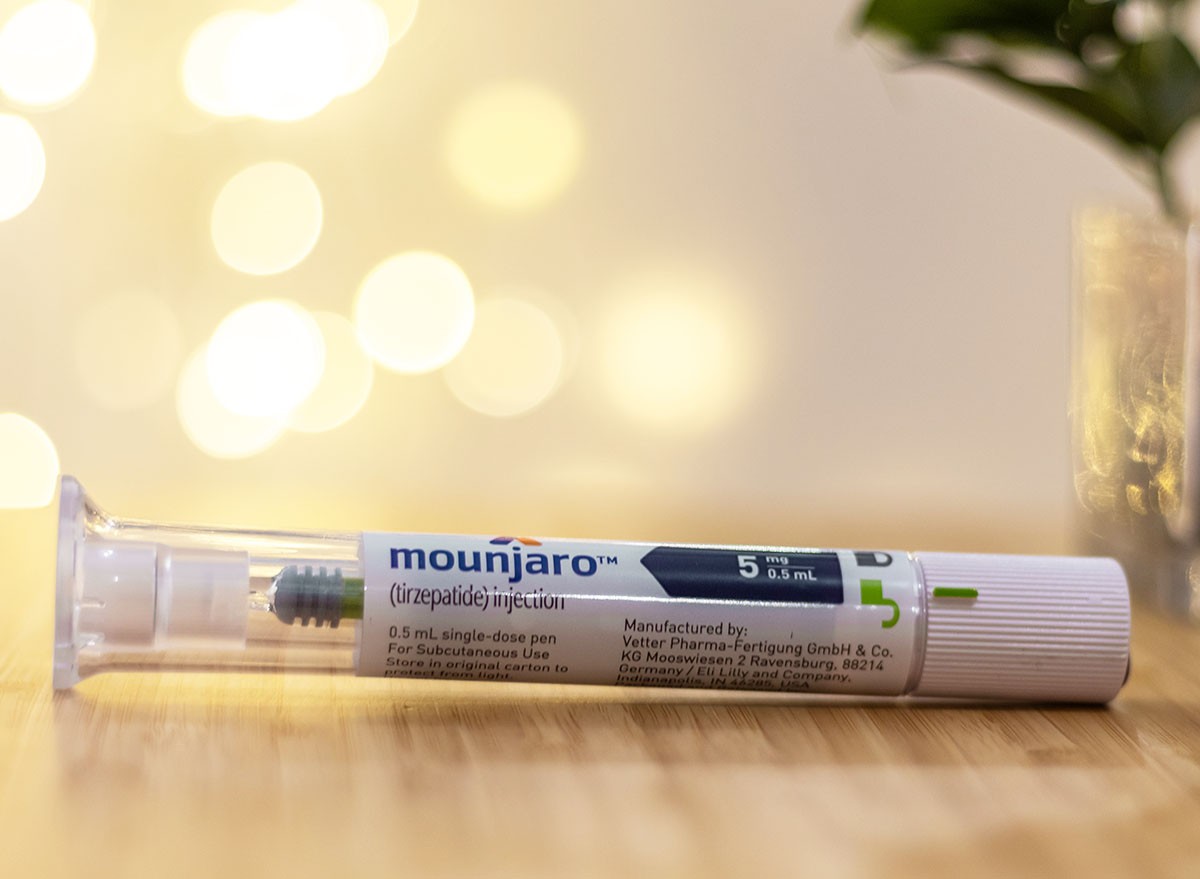She's 48 and Lost 20 Pounds in 3 Months on Mounjaro—Here's How She's Keeping It Off

As a 48-year-old woman dealing with menopause, Giuliana watched helplessly as her weight climbed despite regular exercise and careful eating. After gaining nearly 20 pounds over five years, she reached her breaking point at 143.8 pounds—the heaviest she'd ever been, even after three pregnancies. Working with her husband, Dr. Matt Reuschle, PT, DPT, CSCS from GoTherex, she finally found success with Mounjaro when traditional methods failed. Here's exactly how she dropped 20 pounds in just three months and, more importantly, the specific strategies she's using to maintain her results long-term.
Why Her Body Stopped Responding to Exercise
Despite maintaining an active lifestyle, Giuliana's weight continued climbing steadily year after year. "I used to be like 130, 128 pounds and I reached a point when I was almost 144," she explained to her husband. Standing at just 5'2", this weight wasn't healthy for her frame. Her daily three-mile walks and regular garage weightlifting sessions made no difference—the pounds kept accumulating regardless of her efforts.
RELATED: 15 Things to Know Before Requesting Ozempic for Weight Loss
When Hormones Take Over Your Metabolism

Hormonal changes played the primary role in Giuliana's weight struggle. "I was pretty menopausal. All the gaining of the weight was due to my age and also because I was taking birth control pills," she realized. Even after switching from pills to an IUD to help with hormonal balance, the weight continued accumulating. She consulted with dieticians and tried various exercise regimens, but nothing stopped the scale from climbing upward.
Why Her Doctor Recommended Mounjaro Instead of Other Options

Dr. Matt selected Mounjaro specifically because of its impressive efficacy compared to other weight loss medications. "It's currently the best of the drugs available for weight loss," he explained to her. While older weight loss medications showed only 5-7% efficacy in research, Mounjaro affects both GLP-1 and GIP receptors, showing over 20% weight loss in studies. This dual-action mechanism made it the logical choice for someone like Giuliana who had the exercise portion mastered but struggled with dietary control despite best efforts.
Her Weekly Treatment Schedule

Giuliana's treatment followed a structured approach with careful monitoring to ensure safety and effectiveness. "Every week, at the same time, on the same day, I went to the doctor to get my shot," she committed to the process. A nurse administered the injection in her stomach, which was completely painless—much easier than she expected. Each visit included a full body composition analysis to track her progress beyond just weight. The medication dosage increased monthly for three months until she reached her goal weight, followed by a final month at a lower dosage to safely discontinue treatment.
RELATED: 20 Possible Ozempic Side Effects
How She Tracked Every Change in Her Body

Detailed body composition reports provided Giuliana with comprehensive insights beyond just the number on the scale. "The report included my body fat percentage, visceral fat, total body water, and muscle mass measurements for different body parts," giving her a complete picture of her changing body. Starting at 143.8 pounds with 30% body fat (and visceral fat at 7), her final report showed remarkable progress: 123.6 pounds with 24.6% body fat (visceral fat down to 5). Particularly encouraging was maintaining most of her muscle mass—losing less than one pound of muscle (from 29 to 28.1 pounds) while shedding nearly 20 pounds overall.
Side Effects She Experienced (And How She Managed Them)

Unlike many Mounjaro users who experience severe nausea, Giuliana's experience was surprisingly different. "I never had any nausea, I never vomited. I think it's because I started with a lower dosage so my body was getting used to the medicine," which made the process much more manageable than she expected. However, she did struggle with significant constipation—sometimes going five days without a bowel movement, which was extremely uncomfortable. Through trial and error, she developed an effective remedy combining prune juice with Miralax, applesauce, and fiber-rich celery that finally provided relief when needed.
Why You Must Prioritize Protein While Taking Weight Loss Medication

Dr. Matt emphasized that proper nutrition and exercise were absolutely essential companions to the medication—not optional add-ons. "We want to make sure that we're losing the weight that's most appropriate to lose," he explained, focusing on fat loss rather than just weight loss. The goal was specifically to preserve muscle mass while shedding fat, which required strategic intervention with her diet. "We need to stimulate muscle growth and muscle retention through your diet. So number one, we need to raise your protein," became Giuliana's daily focus even when she wasn't hungry. Additionally, resistance training provided the stimulus needed to maintain and build lean tissue, which keeps metabolism higher long-term.
RELATED: What Happens to Your Body When You Stop Taking Ozempic
How Mounjaro Rewired Her Brain's Relationship With Food

The most unexpected and valuable benefit Giuliana experienced was the complete elimination of food cravings that had haunted her for years. "The voice in my head that used to tell me before I took Mounjaro that I have cravings, those cravings haven't come back," even months after stopping the medication. This mental reset fundamentally changed her relationship with food—she now views it primarily as fuel rather than comfort or habit. Even during Christmas and holiday celebrations, she could enjoy treats in moderation without feeling out of control or derailing her progress, a freedom she hadn't experienced in years.
The Right Way to Transition Off Medication (Without Regaining Weight)

Dr. Matt emphasized the crucial process of "reverse dieting" when transitioning off Mounjaro to prevent the weight regain that affects many people. "Maintain for two to four weeks before you ever go to raise your calories or decrease your activity levels once you reach your goal," he advised her with specific instructions. The transition period typically needs to equal the weight loss period—so her three months of weight loss required three months of careful transition to normal eating. This methodical approach prevents the metabolism from being shocked by sudden dietary changes, dramatically reducing the common risk of rapid weight regain after stopping medication.
How She's Building Sustainable Habits That Stick

The key to maintaining Giuliana's results long-term lies entirely in the new habits she formed during treatment. "Mounjaro gives you a chance to build habits without those same mechanisms in the body that have been driving you towards the bad habits," Dr. Matt explained about the window of opportunity the medication provides. She's found that smaller portions and protein-focused meals have genuinely become her new normal without feeling like deprivation. The four months on medication provided enough time to establish these healthier patterns as automatic behaviors, making maintenance significantly more manageable now that her treatment has ended.
Why Professional Guidance Makes All the Difference

From her experience, working with qualified health professionals rather than trying to navigate this journey alone made an enormous difference in Giuliana's success. "You want to look for people that are looking to improve your health, not just looking to get you to lose weight," Dr. Matt advises based on years of clinical experience. Quality professionals focus on creating sustainable environments for long-term success rather than just quick results, helping clients feel better, look better, and ultimately live better through permanent lifestyle changes rather than temporary fixes that lead to inevitable rebounds.
RELATED: 20 Things to Avoid While on Ozempic
The Complete Approach That Finally Worked For Her

Giuliana's success ultimately came from addressing multiple health factors simultaneously rather than focusing exclusively on weight loss. "Health and fitness is more than just exercise. You're going to need to take a look at your diet, your stress levels, which includes how you sleep, and understand your blood and hormones," Dr. Matt explains about the approach that finally worked for her after years of frustration. This comprehensive method ensured that all potential obstacles to her weight management were identified and addressed, creating a foundation for lasting results beyond just the number on the scale. At 48, she finally feels like herself again—and more importantly, she has the tools to stay this way. And if you enjoyed this article, don't miss 20 Incredible Ozempic Success Stories of All Time.




